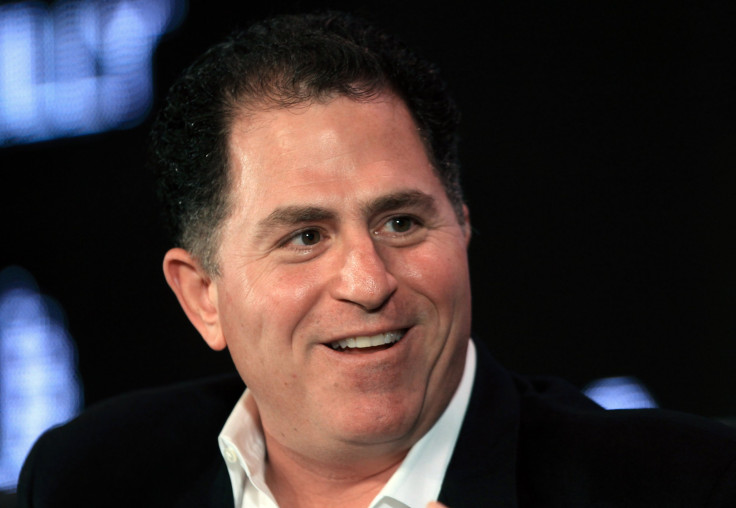Technology Focus: Is Michael Dell On The Verge Of A Huge Mistake?

The decision is up to Michael S. Dell. The question is whether to engage in financial engineering by taking Dell (NASDAQ:DELL), the No. 3 PC maker, into the biggest-ever technology leveraged buyout or remaining independent. A decision to take the company private in a deal valued around $23 billion could be imminent.
Wall Street types leaked news that Dell was working with Silver Lake Partners, the technology private equity firm in Menlo Park, Calif., to take over the company, perhaps with the Canadian Pension Plan Investment Board, with bank financing from JPMorgan Chase (NYSE:JPM), which is advising Dell, along with Bank of America (NYSE:BAC), Royal Bank of Canada (NYSE:RY) and Credit Suisse (NYSE:CS),
The news, first speculated six weeks ago, has sent depressed Dell shares up considerably. They closed Friday at $12.84, up 2 cents, for a weekly gain of 18 percent. Since Dec. 5, the gain has been 25.6 percent.
Clearly, that’s balm for shareholders, mainly institutions like T. Rowe Price (NASDAQ:TROW), Vanguard Funds and BlackRock Funds (NYSE:BLK). Even with the recent upsurge and dividends, Dell shares are still down 20 percent over the past year and nearly 50 percent since 2003.
Going private would enable Dell to exit the rigamarole of quarterly earnings and analyst meetings, lower costs and free time for managers to concentrate on their strategy of becoming a full-fledged computer services provider, somewhat like International Business Machines Corp. (NYSE:IBM), the No. 2 computer company.
They’ve spent about $12.7 billion on acquisitions since 2007, buying public and private companies, including SonicWall, Quest Software, Compellent Technologies and Wyse Technologies, using the Round Rock, Tex., company’s huge cash flow plus cash and investments.
Going private would mean saddling Dell with enormous debts, conceivably $23 billion, which would have to be paid off over time. There’d be huge management fees for Silver Lake at every step. Then the banks who syndicate loans in the U.S. and abroad would have to be paid back, with interest.
Anyone who has ever bought a home with a mortgage knows the hassle of a closing, with real estate agents, bank officials, lawyers, title specialists and the seller. Now imagine a closing with dozens of specialists involved, all of whom have to be paid off immediately or over time. In a buyout, they never go home!
What’s more: Dell, 47, owns 15.7 percent of the company called PC’s Limited when he founded it in his University of Texas dormitory in 1984. As CEO, chairman and director, he’d have to ask his handpicked board of directors to evaluate a bid for the company and not participate. He'd also have to deal with the owners of the company's current $9.3 billion in outstanding debt, who may not want to see an ownership change.
The board might decide a high-priced deal is in the shareholders’ best interests, even if it may not be.
Now, Dell, the company, does what Dell, the boss, wants. Should it be sold to Silver Lake, it would answer to Silver Lake Managing Director Glenn Hutchins and his partners, many of whom have outstanding technology backgrounds.
Why would Michael Dell want to cede control? His name is on the door and every product the company sells. Through all its ups and downs, his fortune of $14.6 billion now ranks him No. 22 on the Forbes 400. This university dropout is respected as one of the most dynamic business leaders in technology.
Moreover, the cash flow from Dell’s corporate operations -- about $3 billion for the 12 months ending Nov. 2 -- would likely be earmarked to pay down new debt and bank loans, rather than provide profits and funds for new products.
Dell’s third-quarter research and development spending was a meager 1.9 percent of revenue, but $50 million more than a year ago. Sales of PCs fell about 3.5 percent last year, Gartner (NYSE:IT) reported. Dell, which may want to get into the tablet, smartphone or medical electronics market, will need that cash.
There are other huge questions, such as how to deal with $14.2 billion in cash and corporate investments, most of which is outside the U.S. Repatriation could incur a huge tax bill.
In 2004, Dell stepped aside as CEO in favor of his vice chairman, Kevin Rollins, who messed up so badly the company lost its lead to HP and had to pay a $100 million fine to the Securities and Exchange Commission before Dell returned. Would he want to give up control now, then execute the strategy already underway?
Chances are, no.
© Copyright IBTimes 2024. All rights reserved.






















